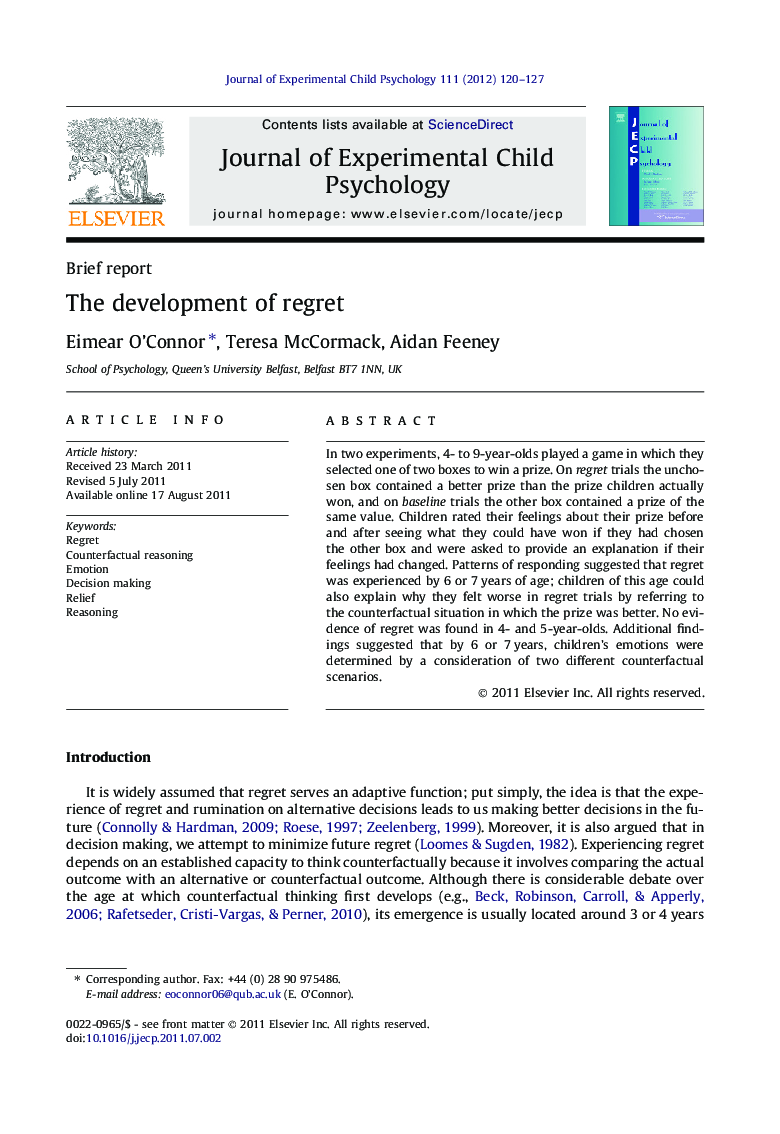| Article ID | Journal | Published Year | Pages | File Type |
|---|---|---|---|---|
| 918349 | Journal of Experimental Child Psychology | 2012 | 8 Pages |
In two experiments, 4- to 9-year-olds played a game in which they selected one of two boxes to win a prize. On regret trials the unchosen box contained a better prize than the prize children actually won, and on baseline trials the other box contained a prize of the same value. Children rated their feelings about their prize before and after seeing what they could have won if they had chosen the other box and were asked to provide an explanation if their feelings had changed. Patterns of responding suggested that regret was experienced by 6 or 7 years of age; children of this age could also explain why they felt worse in regret trials by referring to the counterfactual situation in which the prize was better. No evidence of regret was found in 4- and 5-year-olds. Additional findings suggested that by 6 or 7 years, children’s emotions were determined by a consideration of two different counterfactual scenarios.
► Evidence of regret emerging at 6 years of age. ► Ability to articulate reason for regret at 6 years of age. ► Ability to compare actual outcome with alternative outcomes at 6 years of age.
